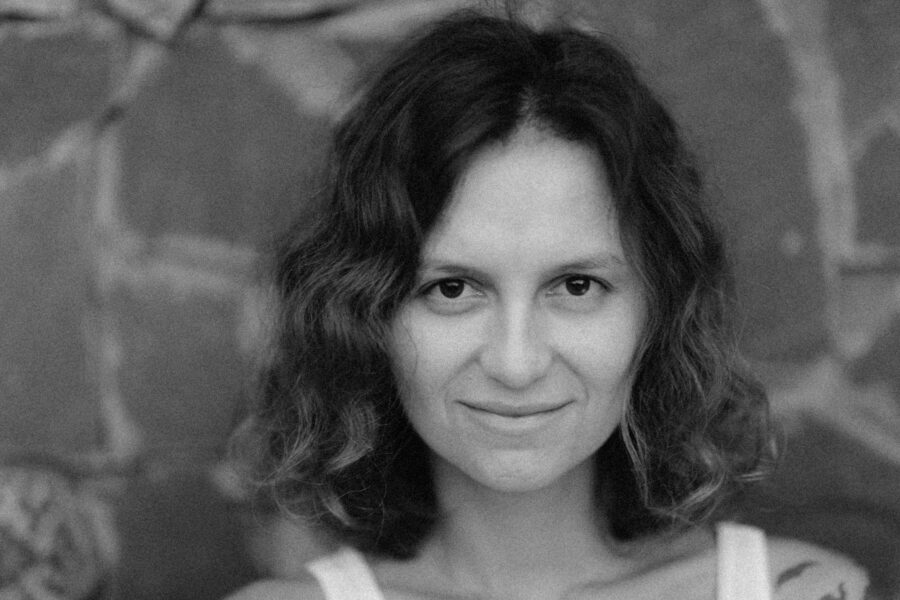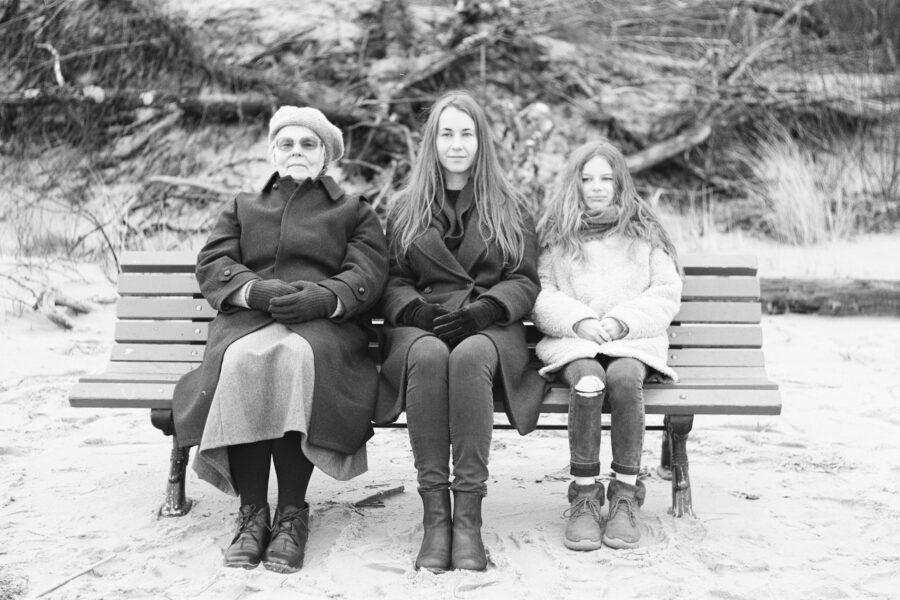Childhood bullying doesn’t always leave visible scars, but its effects often linger long after the last cruel comment or shove in the hallway.

For many adults, the pain shows up in ways that are subtle and hard to trace back. You might not even realise how much of your inner world has been shaped by things you survived when you were young. Bullying has a way of planting seeds of self-doubt, fear, and shame, and unless those wounds are consciously tended to, they can keep influencing how you see yourself and how you move through the world. Here are some of the ways that early bullying can definitely shape adult mental health.
1. You struggle to believe people actually like you.
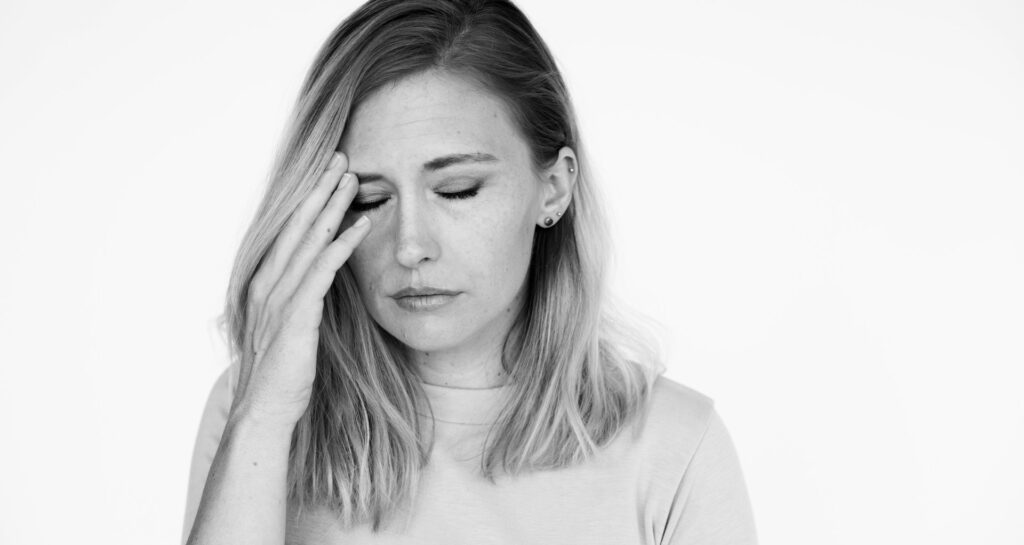
Even when people are kind or inclusive, there’s a voice in the back of your head that questions their sincerity. You might assume they’re just being polite, or that they’ll eventually change their mind. That hypervigilance often comes from years of being mocked, excluded, or humiliated. When your early experiences taught you to expect rejection, genuine acceptance can feel suspicious, even if it’s real.
2. You downplay your accomplishments out of habit.
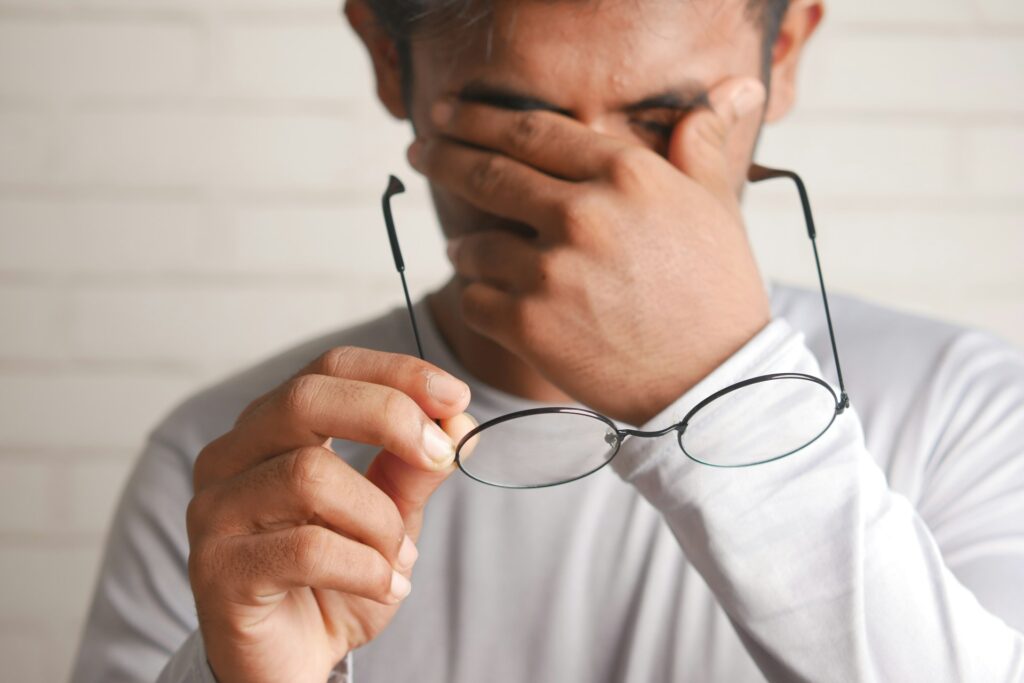
Bullying teaches you to stay small. To not draw attention. To expect criticism if you stand out too much. As an adult, this can show up as chronic self-deprecation, imposter syndrome, or brushing off compliments. You might genuinely believe that owning your worth will make people dislike you, and that belief was probably rooted in moments when being confident made you a target.
3. You constantly second-guess your social instincts.

Was that joke too much? Did I overshare? Do they secretly think I’m weird? This kind of mental replay can be exhausting, but it’s often a leftover from years spent being told (directly or indirectly) that who you are isn’t quite right. You learned to scan yourself for faults before other people could point them out, and that habit doesn’t just vanish with age.
4. You may isolate yourself to avoid potential judgement.

It’s not that you don’t want connection—you just feel safer alone. People who were bullied often become excellent at self-protection. You learn that pulling away first hurts less than being rejected again. But isolation, while protective in the short term, can reinforce loneliness and make it harder to believe that healthy connection is possible.
5. You experience anxiety in environments that resemble your old school dynamic.
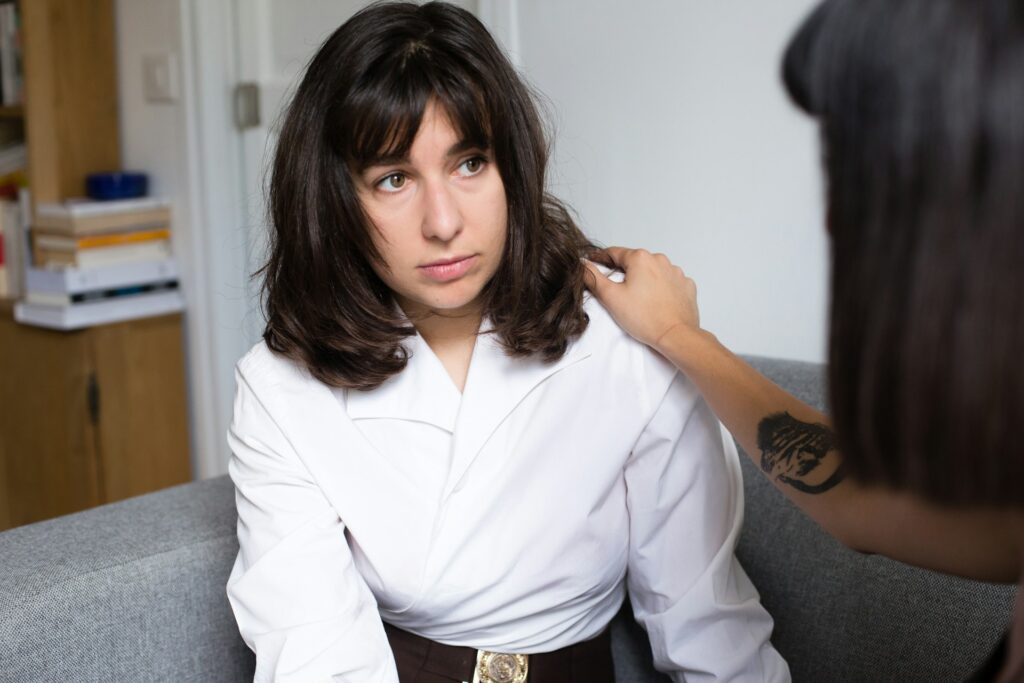
Group settings. Office politics. Social hierarchies. These things can feel more charged than they should, especially if they echo the power dynamics or social stress of school. Even if no one is actually targeting you, your nervous system may still react like it’s under threat. That emotional imprint doesn’t always respond to logic. It responds to familiarity.
6. You either overachieve or under-function to protect yourself.

Some people respond to childhood bullying by becoming hyper-capable—high-performing students, high performers, perfectionists—believing that if they’re impressive enough, they’ll finally be safe. Others internalise the bullying and stop trying altogether, feeling like nothing they do will be good enough anyway. Both are protective strategies. Both come from the same place: trying to survive being made to feel less-than.
7. You struggle to set boundaries because you fear backlash.

When standing up for yourself used to make things worse, it’s not surprising that asserting your needs now feels uncomfortable. You may hesitate to say no, express anger, or even have basic preferences because somewhere inside you still fear punishment or ridicule. This kind of boundary-blurring can lead to people-pleasing, burnout, and resentment that never gets voiced.
8. You internalise blame when things go wrong.

Bullied children are often told (or subtly made to feel) that it’s their fault. That they were too sensitive, too loud, too quiet, too weird. As an adult, this can turn into a reflexive “What did I do wrong?” every time something feels off. It becomes hard to see that sometimes, people behave poorly, and it has nothing to do with you.
9. You may struggle with body image and self-worth, even if the bullying wasn’t appearance-related.
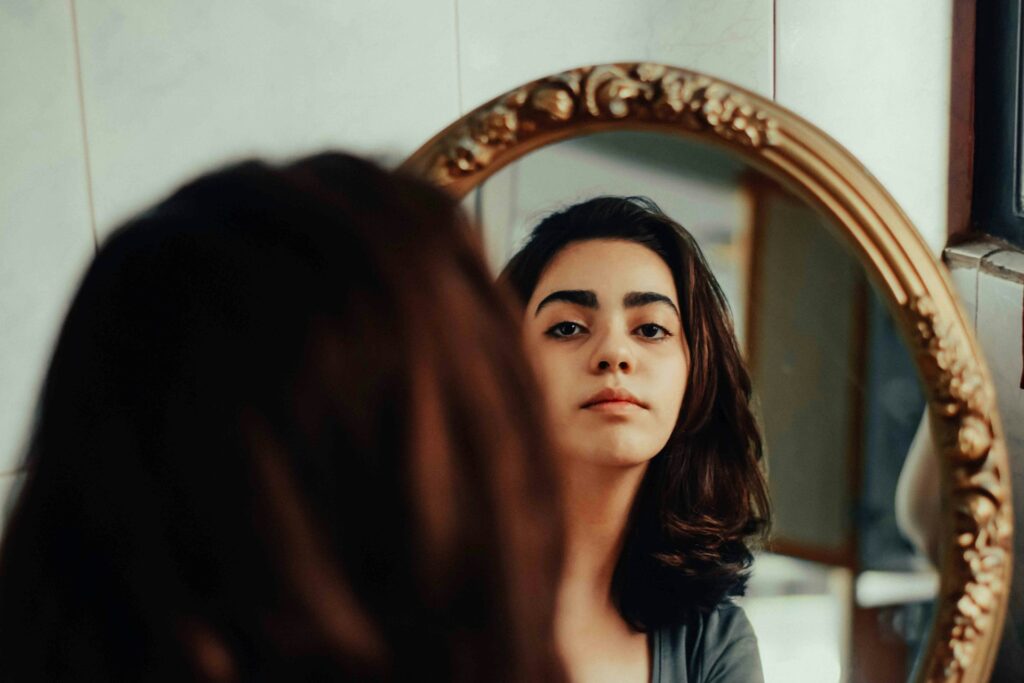
Being targeted, especially at an age when you’re forming your identity, can create a baseline belief that something about you is inherently wrong. That shame doesn’t always attach to the original insult. Sometimes it gets absorbed into how you view your body, your desirability, or your confidence. It becomes a background noise that distorts how you see yourself in the mirror or in relationships.
10. You become highly attuned to rejection, real or perceived.
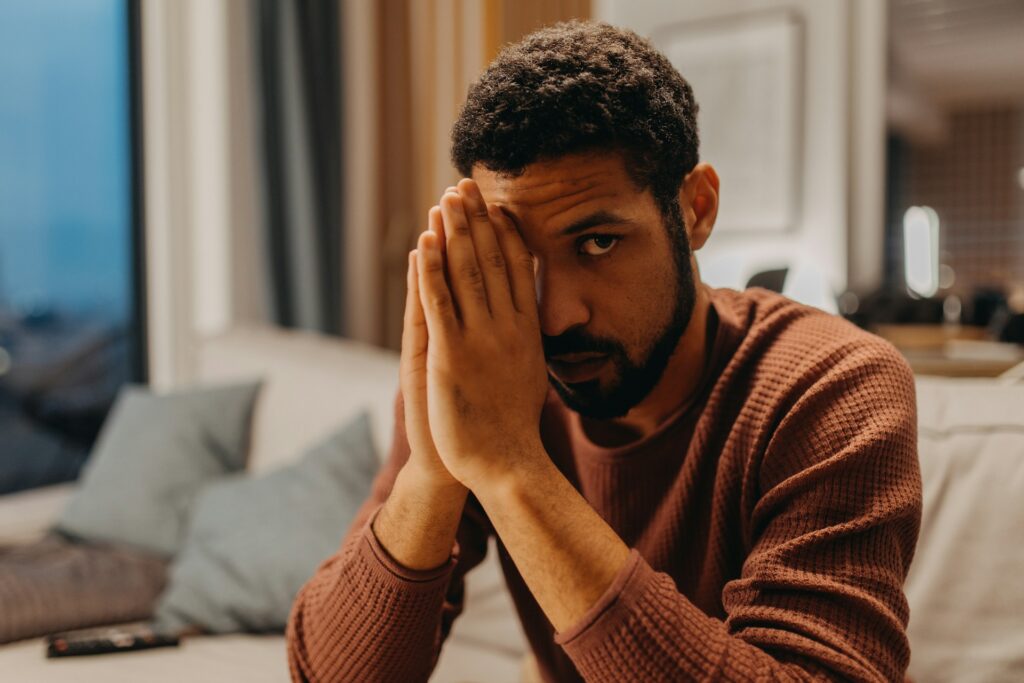
You pick up on small changes in tone. You notice when someone’s energy feels slightly off. And often, you assume it’s about you. That rejection sensitivity is often rooted in early experiences of unpredictability or cruelty. You were trained to scan the room for safety, and as an adult, your brain sometimes still reacts to subtle changes like they’re big threats.
11. You minimise your pain because other people “had it worse.”
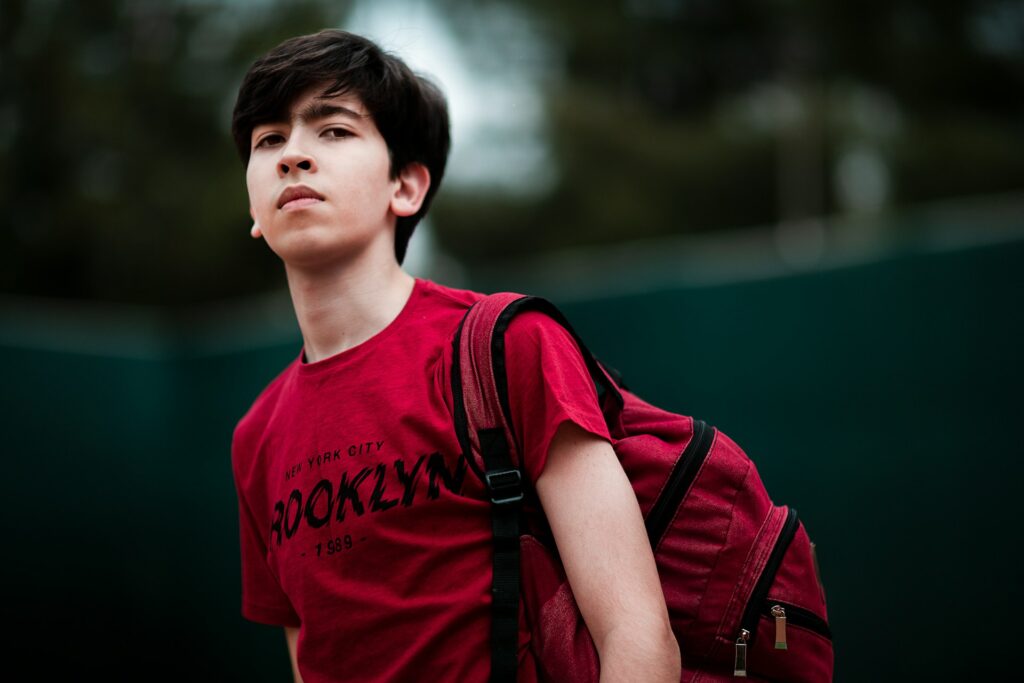
Even if the bullying you experienced wasn’t physical or constant, it still mattered. But a lot of people downplay what they went through because they didn’t end up in crisis, or because they think someone else suffered more. This comparison keeps you from acknowledging your own wounds, which only delays healing. Pain is valid even if it wasn’t the worst-case scenario.
12. You’re deeply empathetic, but sometimes at your own expense.

Having been treated cruelly, you’re often hyper-aware of other people’s feelings. You know how it feels to be excluded, mocked, or ignored, so you go out of your way to make other people feel seen. While this makes you compassionate, it can also lead to emotional overextending, especially if you feel responsible for keeping the peace or avoiding conflict.
13. You may still hear their voices when you try to speak up.

That sarcastic tone, that eye-roll, that laughter in the background—it can echo in your head even now, especially when you try to be confident, visible, or proud. You might not consciously think of the bullies anymore, but the way they made you feel still lingers in how you show up. Healing often means noticing when those voices are shaping your choices, and gently replacing them with your own.
14. You feel like you’ve “moved on,” but something still feels stuck.

You might be successful, surrounded by good people, or even in therapy, and yet, there’s a heaviness you can’t quite shake. That’s because bullying doesn’t always create obvious trauma. Sometimes it leaves a residue—low self-worth, fear of being seen, or chronic doubt—that hides in plain sight. Until it’s named, it often stays.

